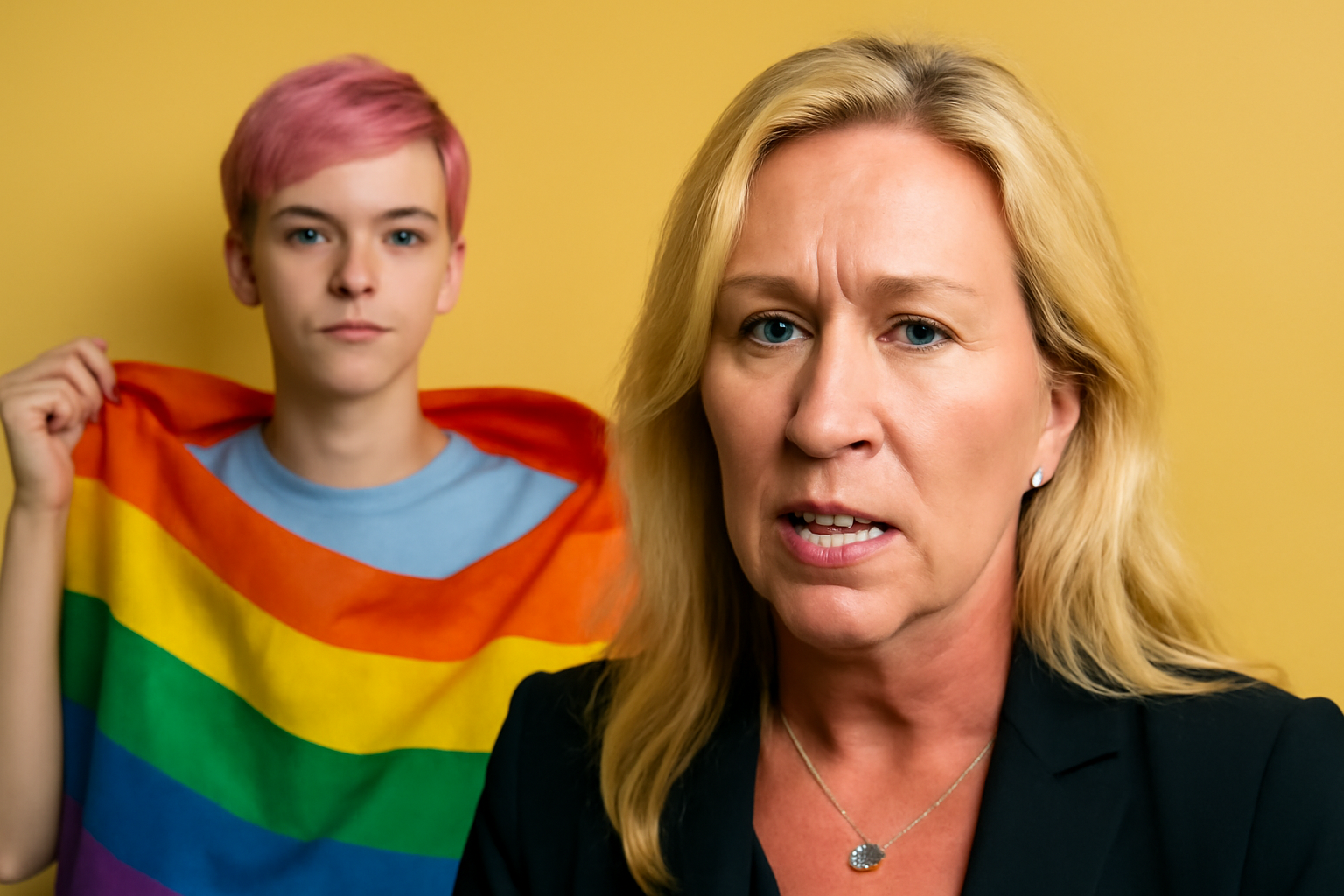
**Georgia lawmaker stirs debate with new gender care legislation**
Georgia Representative Marjorie Taylor Greene has once again set off a heated debate by reintroducing a bill that aims at dramatically restricting access, especially targeting transgender youth, seeking gender-affirming medical care. Dubbed as "Protect Children's Innocence Act," this proposed legislation has caught significant attention. It's heading towards a discussion in front not only in political arenas but also within LGBTQ+ communities.
## What does Greene's bill propose?
Greene's highly controversial bill seeks some harsh changes. It proposes that healthcare providers offering gender-affirming care could face a Class C federal felony if their patients are minors diagnosed with gender dysphoria. This, despite top medical bodies recognizing these practices as necessary and backed by evidence. But that's not all. The legislation goes further, aiming at cutting off federal funding including Medicaid, and stopping medical schools from teaching about these essential healthcare services. Even coverage under something as fundamental as Affordable Care Act would be off-limits.
And in a move that raises eyebrows further, it suggests prohibiting those in favor or involved in gender-affirming care from immigrating. Needless, it has alarmed transgender rights advocates who argue that this bill could really jeopardize transgender youth, flying in direct opposition with established medical consensus.
## The supporters and their critics
On one side, you've got Marjorie Taylor Greene, a Republican, defending her piece as vital in shielding children from, in her words, "barbaric procedures." She took aim at what she calls "left-wing activists and medical institutions," accusing them in a press release, labeling these medical practices as "mulation." Yet, her claims face fierce pushback from LGBTQ+ advocates and numerous healthcare experts who emphasize that gender-affirming care really plays a vital role in healthcare when it comes down it.
While she introduced this bill, it's had a rocky road gaining traction in past Congressional sessions, and let's say its future still looks hazy. It found support from 38 co-sponsors in The House, but it surely won't go down without opposition. Some Republicans, especially those with a more moderate stance, are expected not might align with it. Although Republicans hold a majority, does that really spell an easy pass? Probably not, given how tangled legislative negotiations are with all their bipartisan dynamics.
## Medical community weighs in
Cut through all that noise, and you'll hear strong voices from leading medical organizations, including The American Medical Association and The Endocrine Society, firmly backing gender-affirming care. They call attention with data supporting their side—put forth more than 2,000 scientific studies since 1975 affirming these practices' necessity and efficacy.
These organizations have raised flags about misinformation on gender-affirming care, highlighting its role in recent legislative attacks. At least 18 states have imposed restrictions or outright bans, conflicting with scientific findings that suggest such measures could severely impact transgender individuals' health and overall well-being.
## LGBTQ+ community impact
The reintroduction? It's more than just politics. For many in LGBTQ+ circles, especially transgender youth, this bill means much more concerning authenticity and healthcare access. Many advocates see it as part and parcel in a wider campaign that aims at rolling back on transgender rights and healthcare access.
As this bill now works its path through legislative channels, it'll be under scrutiny from allies and adversaries alike, turning it a key point in national discussions on transgender rights and healthcare. The outcomes here? They might significantly reshape not only legal viewpoints but societal attitudes toward gender diversity too.
For those part and parcel within LGBTQ+ circles, staying updated on this bill and similar legislative affairs remains paramount. Many organizations are gearing up and staying steadfast, championing transgender rights, advocating evidence-based practices, and empowering voices directly impacted by these legislative measures.
